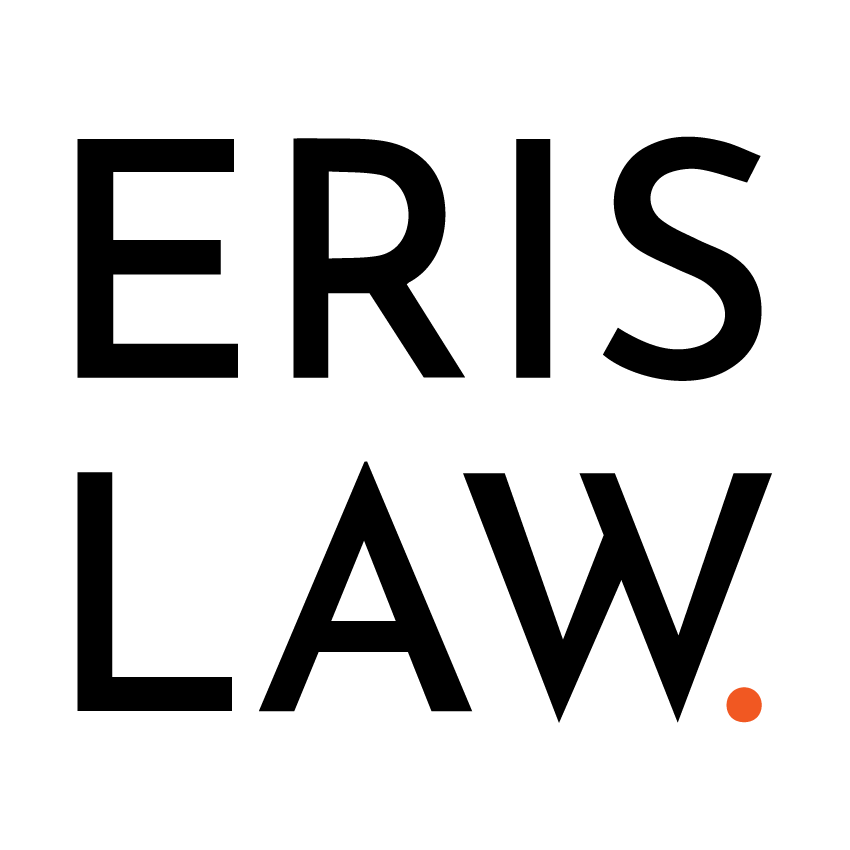What’s New at Eris Law Advokatbyrå AB
We are thrilled to announce that Eris Law Advokatbyrå AB will be participating in the Stockholm Tech Show 2025, taking place on May 14–15 at Kistamässan in Stockholm. As the Nordic region’s premier event for digital transformation, the Stockholm Tech Show brings together over 4,500 visitors, 250 exhibitors, and 250 speakers across six dynamic expos: AI & Big Data, Cloud, Cyber Security, Datacentre, DevOps, and Mobile.
By engaging with innovators and industry leaders at the Stockholm Tech Show, we aim to stay at the forefront of technological advancements and provide our clients with informed, forward-thinking legal solutions.
We look forward to connecting with fellow attendees to discuss how legal frameworks can support and enhance technological innovation. If you’re attending the Stockholm Tech Show, we invite you to set a meeting with us if you need assistance in navigating the legal complexities of the tech landscape.
📩 Get in touch at info@erislaw.se.

Fintech
Trump Media Ventures into Crypto ETFs with ’Made in America’ Focus: Trump Media & Technology Group has announced a partnership with Crypto.com and Yorkville America Digital to launch a series of exchange-traded funds (ETFs) emphasizing American industries and digital assets. These ETFs, to be introduced under the Truth.Fi brand, aim to align with ”America First” policies and are expected to debut later this year, pending regulatory approval. The initiative reflects Trump Media’s strategic expansion into financial services, targeting investors interested in U.S. economic growth and technological innovation. Despite the announcement, no ETF filings have been submitted to the Securities and Exchange Commission as of now.
Fiserv Expands Its Fintech Footprint with New Hub and Strategic Digital Moves: Fiserv is enhancing its presence in the fintech sector through significant initiatives aimed at innovation and collaboration with financial institutions. The company has announced the opening of a new fintech innovation center in Overland Park, Kansas, expected to create approximately 2,000 jobs and support advancements in payments, banking, and commerce technologies. Concurrently, Fiserv is expanding its AppMarket platform to connect financial institutions with fintech partners, aiming to meet the growing demand for personalized digital banking experiences and faster payments. These strategic moves underscore Fiserv’s commitment to scaling its operations and integrating services to solidify its role as a key infrastructure player in the fintech industry.
Solid’s Collapse Highlights Challenges in Fintech Infrastructure Scaling: Solid, once hailed as the ”AWS of fintech,” has filed for bankruptcy despite securing nearly $81 million in funding. The company’s ambitious vision to offer modular APIs for financial services faced hurdles due to operational challenges, execution gaps, and intense competition in the fintech infrastructure space. Solid’s downfall underscores the complexities of building scalable and compliant fintech platforms, especially amidst a demanding regulatory environment and the rise of embedded finance. This serves as a cautionary tale for startups and investors, emphasizing that substantial capital must be paired with robust execution and regulatory alignment to succeed in the fintech sector.
GDPR
EDPB Unveils 2024 Annual Report: Strengthening Data Protection Across Europe: The European Data Protection Board (EDPB) has released its Annual Report for 2024, outlining both its key achievements and its strategic priorities for the 2024–2027 period. The report highlights the EDPB’s efforts to modernize the data protection framework, ensure consistent GDPR enforcement across member states, and strengthen cooperation among EU regulators. It also details outreach efforts to both the public and private sectors, aiming to build a more privacy-aware society. The EDPB’s increasing engagement in international data protection discussions further reinforces the EU’s global leadership in privacy standards.
Google Shifts Strategy: Privacy Sandbox Scrapped, Third-Party Cookies Remain: Google has officially ended its Privacy Sandbox initiative and will retain third-party cookies in its Chrome browser, signaling a major shift in its approach to user privacy. The decision follows regulatory pressure from the UK’s Competition and Markets Authority and widespread skepticism over Google’s proposed tracking alternatives, including the Topics API. Instead of removing cookies, Google plans to focus on giving users more control over how they are tracked. This reversal reflects the challenges tech companies face in balancing privacy with ad-supported business models in an evolving regulatory environment.
EU Finds Apple and Meta in Breach of the Digital Markets Act: The European Commission has concluded that Apple and Meta have violated provisions of the Digital Markets Act (DMA), marking one of the first major enforcement actions under the landmark regulation. Apple was found to have restricted app developers from informing users about alternative payment options outside of the App Store, breaching its anti-steering obligations. Meta, on the other hand, faces scrutiny for its “pay or consent” model, which the Commission argues does not comply with the DMA’s fairness and user choice principles. These findings reflect the EU’s firm stance on digital competition and the growing pressure on tech giants to reform their platform practices.
Telecom
Orange Enhances Cybersecurity Measures Through Partnership with F-Secure: Orange has partnered with Finnish cybersecurity firm F-Secure to strengthen its defenses against scams and cyber threats for its customers. This collaboration will see Orange Cyberdefense integrating F-Secure’s advanced security solutions, including device protection, scam prevention, privacy safeguards, identity monitoring, and parental controls. The alliance aims to provide comprehensive protection to millions of consumers, leveraging F-Secure’s capabilities, which reportedly detect and block significant volumes of malware and suspicious activities daily. Executives from both companies have expressed confidence that this partnership will elevate consumer protection standards and contribute to building a safer digital society across Europe.
Vodafone, A1, and Ericsson Achieve World’s First 5G Standalone Roaming Connection: Vodafone Germany, A1 Bulgaria, and Ericsson have successfully established the world’s first international 5G standalone (SA) roaming connection between two different operator groups. This milestone demonstrates seamless data and voice connectivity using standard devices and commercially available core network software, adhering to the latest 3GPP standards. The collaboration highlights the potential of 5G SA to offer high-speed, low-latency connectivity for travelers and multinational enterprises, enabling applications such as industrial automation and augmented reality experiences across borders. While this achievement marks significant progress, widespread adoption will require further development of roaming architectures, including secure signaling protocols like SEPP and updated billing standards to support the dynamic capabilities of 5G SA networks.
AT&T and AST SpaceMobile Receive FCC Approval for Direct-to-Cell Trials on FirstNet: AT&T has secured approval from the U.S. Federal Communications Commission (FCC) to commence trials of direct-to-cell satellite services on its FirstNet public safety network. Partnering with AST SpaceMobile, the trials will utilize the company’s BlueBird low Earth orbit satellites to enhance connectivity for first responders, particularly in remote and underserved areas. While specific details regarding the services to be tested remain undisclosed, this initiative represents a significant step toward integrating satellite capabilities into FirstNet’s infrastructure. The move aims to address coverage gaps across the U.S., ensuring that emergency services have reliable communication channels nationwide.
AI
EU Launches €20 Billion AI ”Gigafactories” Initiative: The European Union has announced a €20 billion investment to build up to five AI ”gigafactories” equipped with advanced supercomputers. These facilities aim to bolster Europe’s competitiveness in AI, focusing on sectors like healthcare, robotics, and scientific research. Each site will house over 100,000 AI processors, with sustainability measures such as green energy and water recycling being integral to the design. The initiative also includes efforts to develop domestic AI semiconductors.
Sweden Accelerates Development of AI-Powered Swarm Drones for NATO: Sweden is fast-tracking the development of AI-driven swarm drones intended for NATO defense applications. These drones, capable of real-time collaborative operations, are designed for surveillance and attack missions. Developed in partnership with Saab, the drones will undergo testing in upcoming NATO exercises. This move underscores Sweden’s commitment to enhancing defense capabilities through rapid technological innovation.
Meta Resumes AI Training Using Public EU User Content: Meta has announced the resumption of training its AI models using publicly available content from adult users in the European Union. This decision follows confirmation from EU privacy regulators that Meta’s approach complies with legal requirements. The training will utilize public posts, comments, and interactions, excluding private messages. Users will be notified and given the option to opt out of this data usage.
Cybersecurity
Testing of Submission of DORA Register of Information in April 2025: The ESAs’ testing of DORA Registers submissions revealed significant data quality issues, necessitating further interactions and resubmissions. Common errors included foreign key violations, missing mandatory values, and incorrect primary keys. The published materials provide detailed explanations of these errors, helping to improve the accuracy and reliability of future submissions.
Novel Phishing Campaign Exploits Remote Desktop Protocol: Google Threat Intelligence Group observed a phishing campaign targeting European government and military organizations, leveraging Remote Desktop Protocol (RDP) to redirect resources and present attacker-controlled applications. The campaign, attributed to a suspected Russia-nexus espionage actor, used signed .rdp files to establish connections and automate malicious activities like file exfiltration and clipboard capture. This highlights the security risks associated with obscure RDP functionalities and underscores the need for vigilance and proactive defense.
NIST Updates Privacy Framework to Align with Cybersecurity Guidelines: The National Institute of Standards and Technology (NIST) has released a draft update to its Privacy Framework, aiming to align it with the recently updated Cybersecurity Framework and improve usability. The update includes targeted revisions to the core structure and content, a new section on AI and privacy risk management, and relocation of use guidelines to an interactive online FAQ page. NIST is soliciting public feedback on the draft until June 13, 2025, before finalizing the document later this year.
Intellectual Property
EU to Enforce New Design Rights Regulation from May 1, 2025: In the European Union, a significant development is the upcoming enforcement of the European Design Regulation (EUDR), which takes effect on May 1, 2025. This regulation introduces several key updates, including the renaming of ”Community Designs” to ”European Union Designs,” changes to how renewal dates are calculated, and a revision of the definition of a ”design.” Additionally, renewal fees—particularly for the later years of the 25-year term—are set to increase. Businesses are encouraged to review and, if necessary, renew existing designs before May 1 to take advantage of the current lower fees.
Sweden Introduces New Trademark Fee Structure Effective April 25: In Sweden, the Swedish Intellectual Property Office (PRV) has implemented changes to trademark-related fees effective April 25, 2025. The revised fee structure includes modifications to application and renewal fees, reinstatement fees, and charges associated with international registration revocation processes. The goal of these changes is to modernize the system, enhance consistency, and align more closely with international norms and practices.
Sweden Proposes Major Amendments to Copyright Law: Separately, the Swedish government has proposed amendments to the Act on Copyright in Literary and Artistic Works, expected to come into effect on September 1, 2025. The proposed updates are designed to reflect evolving creative and legal landscapes by clarifying the rules around parodies, establishing clearer standards for naming authors, and offering more flexible conditions for the use of copyrighted material without the creator’s express permission. The reform seeks to better balance creators’ rights with societal and cultural interests in reusing creative content.
Tariffs &Trade War
Navigating Tariff Turbulence: How Tesla and Other Companies Are Adapting to Trade War Uncertainties: As the U.S.-China trade war intensifies, companies like Tesla are grappling with the unpredictability of tariffs impacting their operations and financial forecasts. Despite manufacturing most of its vehicles domestically, Tesla faces challenges due to its reliance on Chinese-sourced materials, particularly lithium-iron phosphate batteries for its energy products, leading to halted sales of certain models in China. Other corporations, such as Akzo Nobel and Boston Scientific, are also adjusting strategies to mitigate tariff-related risks, with some localizing production and sourcing to cushion the impact. Overall, the volatile trade landscape is compelling businesses across sectors to reassess supply chains, production plans, and market strategies to navigate the ongoing economic uncertainties.
China Warns Against Trade Deals That Undermine Its Interests Amid Escalating Tariff Dispute: Amid escalating trade tensions, China has issued a warning to other nations against entering trade agreements with the United States that could be detrimental to Chinese interests. This comes in response to President Donald Trump’s announcement of sweeping tariffs on nearly all U.S. trading partners, which were later paused for most countries but intensified against China. The Chinese Commerce Ministry emphasized that any deals compromising China’s interests would be met with firm countermeasures, asserting its determination to safeguard national rights. Meanwhile, U.S. Treasury Secretary Scott Bessent suggested that countries negotiating trade deals with the U.S. should consider a collective approach alongside Washington when dealing with China.
Twelve States Challenge Trump’s Tariff Authority in Federal Court: On April 23, 2025, twelve U.S. states filed a lawsuit against the Trump administration in the U.S. Court of International Trade in New York, seeking to halt the administration’s tariff policy. The states—Oregon, Arizona, Colorado, Connecticut, Delaware, Illinois, Maine, Minnesota, Nevada, New Mexico, New York, and Vermont—argue that President Trump’s tariff measures are unlawful, economically disruptive, and enacted capriciously without proper legal authority. The lawsuit contends that only Congress has the authority to impose tariffs and criticizes the administration’s use of the International Emergency Economic Powers Act as unjustified.
Upcoming Events
- The AI Summit London 2025
Date: June 11–12, 2025
Time: 9:00 am
Location: Tobacco Dock, London, UK
Registration: Link
- Infosecurity Europe
Date: June 3–5, 2025
Time: 9:00 am
Location: ExCeL London, UK
Registration: Link
- European Space Forum 2025
Date: July 2–3, 2025
Time: 9:00 am
Location: Brussels, Belgium
Registration: Link
Meet The Team

Katarina Bohm Hallkvist
Editor-in-Chief

Andres Alma
Reporteur

Reet Singh
Reporteur

Ariunzaya Munkhbat
Reporteur

